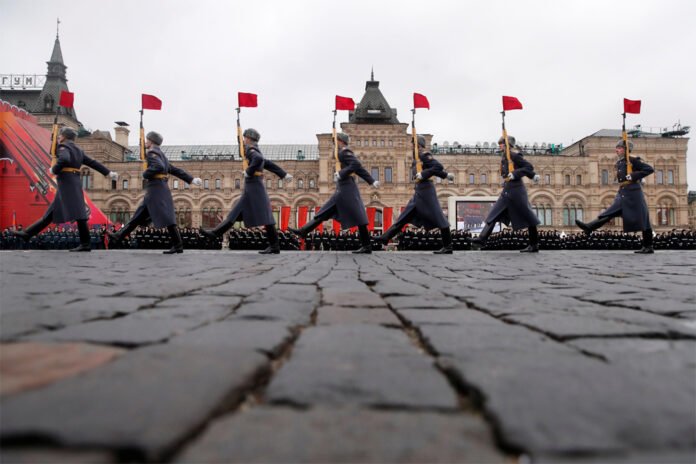This in Soviet Russia 1950 It was well known in the 1970s that millions of Russian prisoners were forced to confess to crimes. They were actually innocent people. But the outside world had no news about this. When mentioned by a few people, it was considered an exaggerated criticism. Which looked so incredible! But the reality was even more frightening than that.
Legacy of the Gulag Archipelago-2
In the Soviet system, arrests and punishments were also given by giving quotas to various cities. So many ‘enemies of the public’ have to be caught in such and such city or district. It was also related to the rewards and promotions given to Soviet intelligence officers! So, police officers used to request the higher ups to let them arrest more ‘enemies of the public’. This madness was to such an extent that many of the Russian soldiers fighting in the Second World War who crossed the German border were also arrested.
Only in the suspicion that since they had seen the free life of the open, capitalist society of Europe, they must have become suspicious of socialism! Then, when the Russian soldiers who had been captured by the Germans and stayed there for months, were returned after the end of the war, they were all taken prisoner in bulk and sent to Gulag. Countless Russian soldiers who did not want to return home were forcibly sent back by the British and other European governments. (George Orwell noted first-hand accounts of this, but the incident was glossed over by the European press because the Soviet Union was then part of the anti-Hitler front). Some of those Russian soldiers committed suicide on the way, knowing what was going to happen to them. All the returned Russian captive soldiers were accused of the same crimes of ‘political’ and ‘anti-revolutionary thoughts’ and were sent to torture camps.
These sections were so widespread that even the family members, relatives and friends of the criminals were automatically declared suspects and often criminals and were taken into custody. A special labor-torture camp was for ‘wives of enemies of the public’. That is, the wife of the person who was taken prisoner was also a suspect in the definite enemy category. Their minor children were also kept captive, so that when they grew up, they could not commit enmity against the government. As Soviet prosecutor Nikolai Krylenko said, “We must protect ourselves not only from the enemies of the past but also from the enemies of the future.”
The forms of punishment were also diverse and more horrific than in tsarist times. The descriptions of the prison written by the Russian writer Dostoyevsky, who was imprisoned during the Czarist era, in his ‘Notes from the House of the Dead’ seem like heaven compared to the descriptions of the Soviet prison and Gulag! Solzhenitsyn notes that when Russian Empress Catherine the Great imprisoned the writer Radishchev (circa 1791 AD), he was not tortured. No one had even dreamed of taking his relatives captive. Rather, Radishchev knew that his son would grow up to become an officer in the Imperial Army, no matter what happened to Radishchev himself.
Similarly, in Tsardom, Lenin’s own brother was hanged as punishment for terrorist action. But Lenin continued studying at Kazan University with pleasure. Also took a law degree. Even if someone was caught for his own anti-state activities, he was simply ordered to go to the countryside. Not even imprisoned. This lasted until the early twentieth century. That is, until the rule of the last Czar, whom Europeans considered the greatest oppressor of all. If any rebel was punished, it was for one year. Which in the Soviet era was at least ten years old, and that too if it had ‘done nothing’, that is, only on the slightest suspicion. Otherwise a sentence of twenty-twenty-five years was normal.
In the Czar’s prisons, political prisoners had facilities to read and write books etc. In fact, the Czar’s prisons were so loose that anyone could escape. Stalin himself had escaped from jail four times. So, Solzhenitsyn writes that there was no reason other than laziness or reluctance that someone could not escape from Russian prisons before the Soviet era if they wanted to. At that time, there was no knowledge of torture, interrogation, forced confession, etc.
In Chekhov’s plays, Russian intellectuals are seen ruminating over the worries of life; if someone had told them about the torture they were subjected to in Russian prisons thirty to forty years later, they would have gone mad! It was well known in Soviet Russia in the 1950s that millions of Russian prisoners who were forced to confess were actually innocent people. But the outside world had no news about this. It was considered an exaggerated criticism when told by a few people, who seemed so unbelievable! But the reality was even more frightening than that.
Soviet interrogators were happy to experiment with new forms of torture on captured prisoners, which earned them prestige among the allies. There was no restriction on anything and no limits in interrogating and torturing prisoners. In the Czarist era, Tolstoy had written about the ‘attraction of power’, but for Soviet interrogators the attraction had changed to ‘intoxication’. When he invented new tricks, he used to call his friends and show them to the interrogators, as if he was relieving his boredom with some new show.
The trembling innocent creatures trapped in their clutches, their pleading eyes, the pleading person, the screams and moans emanating from pain were their entertainment. And all this was the situation before reaching the Gulag labor camps. Mere interrogation, i.e. the situation before punishment is obtained after confessing the crime. Ultimately, after reaching the Gulag, in many places the prisoners prayed to God for their death, so that they could be liberated! (Ongoing)

